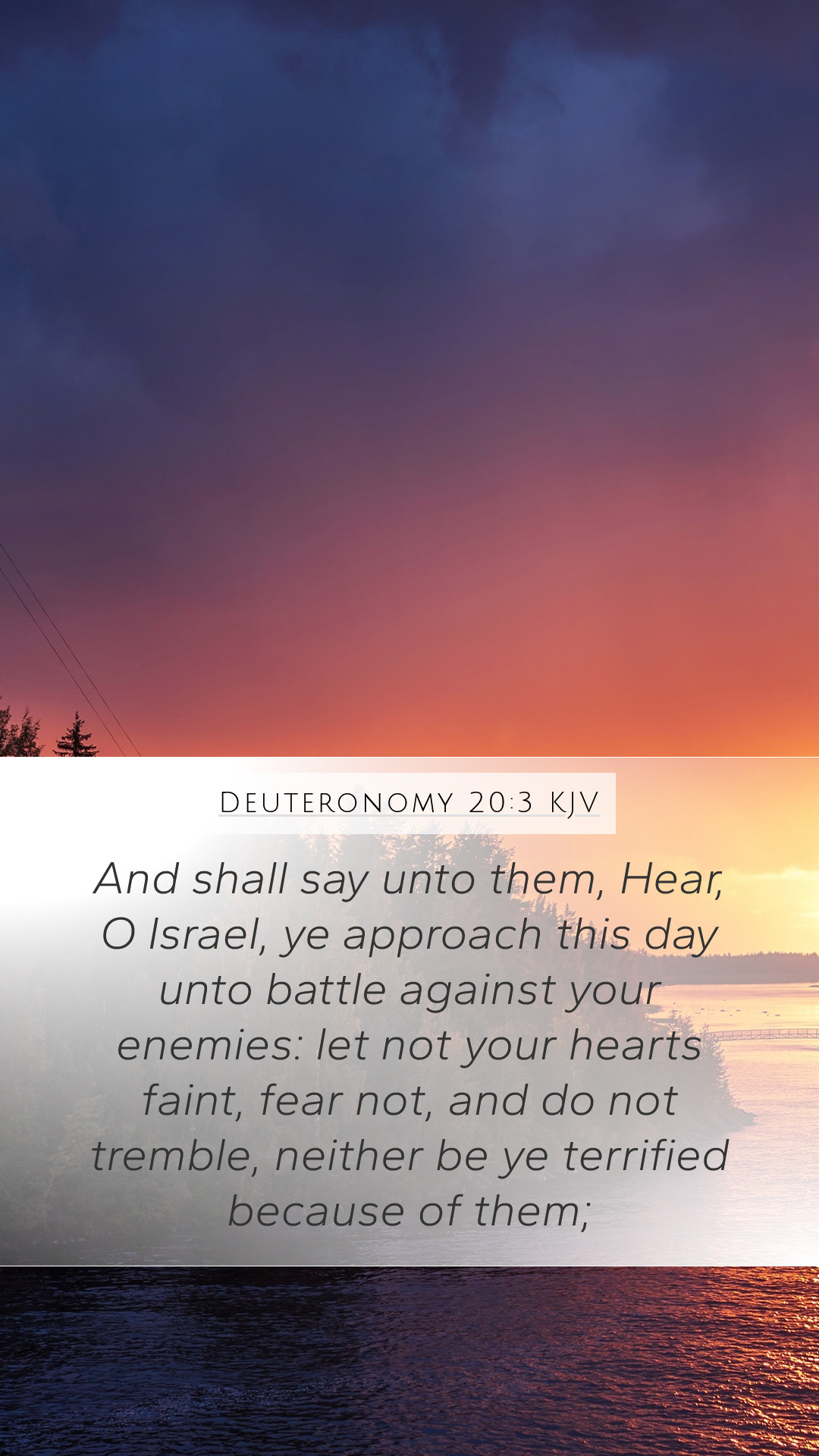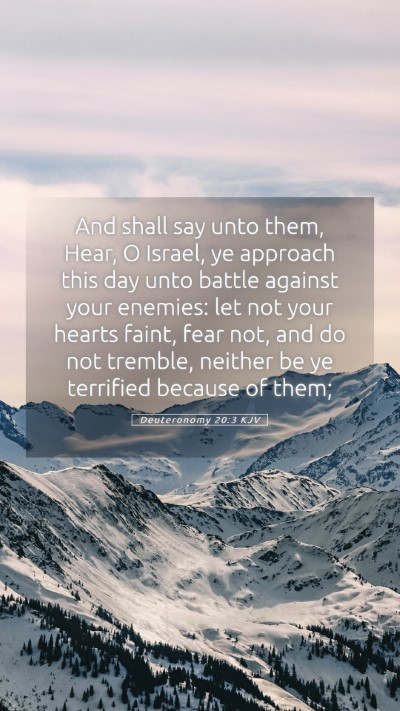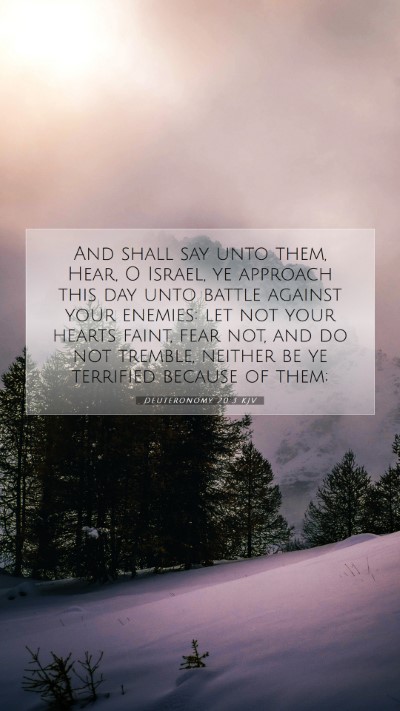Understanding Deuteronomy 20:3
The verse Deuteronomy 20:3 states:
"And shall say unto them, Hear, O Israel, ye approach this day unto battle against your enemies: let not your hearts faint; fear not, and do not tremble, neither be ye terrified because of them."
Overview of the Verse
This verse is part of a larger discourse where God provides Moses with instructions regarding warfare. The Israelites are on the brink of entering the Promised Land, facing the prospect of battle. It is a significant moment in their journey, filled with both hope and fear.
Key Themes and Insights
-
Encouragement in Times of Fear:
God commands the Israelites not to be afraid. This theme of courage recurs throughout the Bible, emphasizing reliance on God's strength rather than personal fear or weakness.
-
Preparation for Battle:
The phrase "ye approach this day unto battle" signifies a call to arms, but it is not merely about physical readiness; it also encompasses spiritual preparation and trust in divine aid.
-
The Role of Leadership:
Moses, as the leader, acts as a conduit for God's messages. His role is critical in boosting morale and providing assurance, highlighting the importance of strong leadership in dire circumstances.
-
Corporate Identity of Israel:
Addressing the whole nation emphasizes the collective identity of Israel. They are not individuals but a united community facing challenges together.
Commentary Insights
Matthew Henry:
Henry points out that God, through Moses, addresses the fears of the people directly, acknowledging the emotional turmoil that comes with impending conflict. By urging them not to fear, God reassures them of His presence and power.
Albert Barnes:
Barnes elaborates on the context of this command. He explains that during times of warfare, fear can often paralyze individuals and nations. Barnes stresses that God’s assurance is rooted in His faithfulness and past victories, reminding believers of His unwavering support.
Adam Clarke:
Clarke highlights the socio-political aspect of the Israelites' situation. He notes that Moses serves as a motivator to foster unity among the people as they prepare for battle with the assurance that their God fights for them.
Biblical Exegesis
This passage is rich in cultural and historical context. It reflects the realities of ancient warfare, where morale was crucial for the success of an army. The verse also serves as a theological reminder that God is not just a distant deity, but an active participant in the lives of His people, particularly during their trials.
Application of the Verse
For modern readers, Deuteronomy 20:3 encourages believers to face their battles—be they spiritual, emotional, or physical—with courage inspired by faith. It calls individuals and communities to trust in divine guidance and support in the face of challenges.
Cross References
- Joshua 1:9 - "Have I not commanded you? Be strong and courageous. Do not be afraid; do not be discouraged, for the Lord your God will be with you wherever you go."
- Psalm 27:1 - "The Lord is my light and my salvation; whom shall I fear? The Lord is the stronghold of my life; of whom shall I be afraid?"
- Isaiah 41:10 - "So do not fear, for I am with you; do not be dismayed, for I am your God. I will strengthen you and help you; I will uphold you with my righteous right hand."
Conclusion
Deuteronomy 20:3 serves as a profound encouragement for those engaged in battles of any kind. Through the communal rallying cry, we find guidance on how to confront our fears with faith, recognize the importance of strong leadership, and unify as a group facing common challenges. As Christians explore this verse, they uncover deeper layers of comfort and strength available through God's promises.


